While both Liverpool and Manchester can claim to have hosted the world’s first passenger train service in September 1830, Birmingham’s historic claim to railway fame goes back even further.
The development of the stationary steam engine in the years up to 1778 by James Watt, in partnership with Matthew Boulton at the Soho works in Birmingham, had a major impact on the Industrial Revolution.
Fast forward more than 200 years, and in the 1990s the seven West Midlands metropolitan councils, through Centro, “had quite a lot of influence” in the specification of local rail services, according to West Midlands Rail’s Malcolm Holmes.
In the early years of franchising, Centro was a co-signatory to the original Central Trains franchise and had a financial input into the rail services.
But the Railways Act of 2006 changed this, and with the start of the present London Midland franchise in November 2007, the West Midland authorities’ involvement in specifying and funding services ended.
Then, in 2012, the Government signalled a change to policy, and consultation started on the devolution of rail powers in several parts of England. Holmes notes that the West Midlands authorities were invited to respond, and a proposition was put to Government “as to what we thought could be achieved. We suggested a discrete franchise covering the West Midlands local services, which would be locally managed after sufficient local expertise had been established”.
In short, the idea is to extract from the current London Midland franchise the local services within the West Midlands Rail area, leaving the remainder of the LM franchise to concentrate on the West Coast Main Line services operated by Class 350 electric units, plus the St Albans Abbey and Bedford-Bletchley branch lines. This operation is informally dubbed West Coast Connect.
As with the Rail North proposition, the DfT is taking a steady approach, being careful to ensure that proper governance structures and expertise are established before moving to full devolution.
Here it is worth noting that the present London Midland and Virgin West Coast franchises expire very close to each other in 2017 (October and September respectively, assuming that the London Midland Direct Award goes ahead as planned). The DfT could have elected to take WM local services into a West Midlands franchise at this stage, still under DfT control, and combined VWC and LM services into one West Coast franchise. This would have resulted in there being one operator into London Euston, a factor worth considering given the amount of disruption to services as the HS2 facility there is developed.
But the DfT, it seems, is taking a more pragmatic approach. Yet the development of West Midlands Rail, the body that (it is hoped) will manage the West Midlands franchise from about 2024, is proceeding steadily. Holmes notes that geographically this will cover not only the seven Metropolitan Districts of the West Midlands Integrated Transport Authority/Centro area, but also seven Shire and Unitary authorities (see panel, page 50).
A key moment in this devolution process came on March 2, when Secretary of State for Transport Patrick McLoughlin met with the WMR Leaders Group in Wolverhampton, and subsequently wrote to the Group reiterating his “whole-hearted support for the principle of devolution, and I am encouraged by the positive voice you are projecting through WMR”.
McLoughlin continued: “While we have discussed that full devolution of local services is not possible for the franchise let in 2017, a collaborative approach offers a positive way forward. This will allow us to develop proposals for how local decision-making can play a central role in defining future rail services in the West Midlands.” He concluded that the next step would be to “establish a Memorandum of Understanding clearly setting out how we will work together”.
The exact details as to how West Midlands Rail and the DfT will work together in the management of this new franchise from 2017 are not yet finalised. Holmes says WMR’s ambition is that it will help draw up the franchise specification (this is already in hand), and then have growing involvement in the day-to-day management of that franchise. This franchise will retain the shape of the present one, although WMR has asked the DfT that the West Midlands services will form a separate business unit from October 2017, discrete from the West Coast Main Line services and with its own branding.
“We can manage our local services far more effectively from within the West Midlands than can be done from an office in London,” says Holmes.
This separate business unit within a DfT-controlled franchise would be the first step in the transition towards a West Midlands franchise managed by West Midlands Rail. It is anticipated that control will pass in stages from the one body to the other, with the end result that eventually West Midlands services will be managed and specified in much the same way as Merseyrail Electrics services have been for some years (RAIL 784).
This carefully staged approach ensures that West Midlands Rail (WMR) can properly build up its expertise and competencies in franchise management, while minimising the risk of any sort of failure that would fall back onto the DfT.
However, while this way of devolving franchises seems to be the most pragmatic, the West Midlands’ designation as being the nation’s ‘Engine for Growth’ emphasises that economic growth is needed now. The core reason for such devolution is the recognition that rail plays a significant part in growing local economies.
Thus, on the one hand, if it is agreed that local control brings better rail services faster and thus economic growth faster, devolution needs to happen as soon as possible. But on the other hand, rushing risks a collapse of the process due to lack of capability.
The next London Midland franchise contract will therefore need to be flexible enough to respond to economic needs. Given the present DfT policy, it is likely to last between seven and nine years, in principle taking it to October 2026 at the latest. But that date is not yet fixed, while the overarching event that will determine the end-date will be the completion of the High Speed 2 line into Birmingham Curzon Street station (presently set for 2026).
It is WMR’s view that the West Midlands devolved franchise needs to be in place by then, so that the tremendous changes in local services needed to provide the required connectivity into HS2 can be made, and advantage taken of the released WCML capacity, without the distraction of ownership or management changes.
Toby Rackliff, WMITA Rail Policy and Strategy Manager, notes that WMR’s ambition goes further than just taking over London Midland’s Birmingham area local services. Eventually, it would like some trains currently run by Chiltern and CrossCountry and which are in the same mould (such as Birmingham-Leamington Spa and to Nuneaton/Leicester) to be remapped into the West Midlands standalone franchise.
The current services between Derby and Birmingham are considered an anomaly. These long-distance trains also serve local needs between those two cities, and are all provided by CrossCountry, with the fares, frequency, train provision and stopping patterns all specified accordingly.
Clearly there is a need for a frequent stopping service along the corridor, particularly to serve the growing towns of Burton and Tamworth (and potential new local stations), yet the journey from Nottingham to Birmingham should also be speedier to cater for longer-distance business needs.
The effects of the long-distance fare structure, generally some 25% above that in other parts of the Birmingham travel-to-work area, is highlighted at Tamworth. The high fare to Birmingham and the cost of parking (£630 for an annual season based on the WCML market) encourages passengers to drive to Four Oaks, unnecessarily throwing more cars onto the local roads and into Four Oaks station’s free (and being extended) car park.
A suitable time to address this situation could be in the run-up to the next CrossCountry franchise, currently set to start in October 2019. Obviously, WMR’s ambitions need to be carefully managed, and matched with capability and political policy.
By early September, the West Midlands Rail Leaders Group was already meeting regularly. Consisting of politicians from each of the 14 constituent areas, the group brings together people with very different political views but who are united around a common strategy. And while Birmingham clearly dominates in terms of the proportion of rail patronage that passes through the city’s stations, the Leaders Group is based on the simple one authority one vote principle.
The next step in this process will be to form a limited company (West Midlands Rail Limited) in December 2015, with each of these Leaders a director, and with the Board particularly charged with maintaining good political relationships, especially with the Government.
“We have the political will and political strength to see this through,” Holmes tells RAIL. “This is fundamentally important, for without this commitment devolution won’t happen. We won’t be able to give confidence to the Secretary of State that we can control the process.”
Rackliff explains that this devolution is “all about specifying and delivering rail services in line with local requirements, and is closely allied to the Government’s Localism agenda and to our aims for economic growth”, with the ability of rail to affect local growth now well understood and recognised.
Adds Holmes: “It is extremely effective on Merseyside, and in London with London Overground.”
It is also important that the railway keeps pace with developments in the wider economy, such as changes to the nighttime and leisure sectors. For example, in general the railway timetable has barely changed from the days when Sunday mornings were for church or for tending the garden, rather than shopping or leisure trips. Thus it can still be difficult for shop workers to get to their places of work by train in time for Sunday morning opening.
Similarly, while running trains right through the night might be going a bit too far, services do tend to stop well before the theatre and restaurant goers are ready to head home from city centres. These are the kinds of areas that local management can address far more easily than centralised control.
The West Midlands Rail area also encompasses towns such as Walsall, which should be seen as an important centre in its own right, worthy of more extensive train services not just to Birmingham, but also to other regional centres such as Stafford and Wolverhampton. This is the kind of ‘quick win’ that WMR is hoping to negotiate into the new franchise starting in 2017, as the start of bringing better services and economic growth to the entire West Midlands area.
But with local control comes local responsibility. While the 14 West Midlands Rail councils will not take any revenue risk (at least for some years), there will be reputational risk that will justify political caution. On the other hand, even though they are very pro-rail, individually the Shire and Unitary authorities have very little clout when it comes to determining rail services. By joining this ‘club of 14’, their voice and influence becomes considerably stronger.
In parallel with these largely political developments, West Midlands Rail has been discussing with the Department for Transport both the London Midland Direct Award franchise (due to run for 18 months from April 2016) and the next LM franchise (from October 2017).
There are ‘soft’ issues to address, such as WiFi on trains and at stations, as well as the challenge of providing sufficient train capacity to allow all those who wish to commute to find space on the trains, and the even bigger challenge of funding capital expenditure on the infrastructure projects that are so desperately needed to optimise rail use.
“The DfT’s High Level Output Specification report in July 2012 said an additional 3,900 seats would be required into Birmingham in the morning peak by 2019,” says Rackliff.
“We’re still some way off even seeing a plan for having that extra capacity delivered, while in the intervening years passenger numbers have continued to grow at twice the rate of industry forecasts. The Direct Award contract will hopefully start to address issues like this, and the process will continue with the next franchise. Solutions cannot wait to the artificial franchise start and end dates.”
In the recent past the West Midlands has fared particularly poorly in the allocation of Government money for major schemes. But the proposed formation next year of the West Midlands Combined Authority, and continuing progress of the three associated Local Enterprise Partnerships, should hopefully unlock further funding to address the region’s priority rail infrastructure schemes.
Nevertheless, regional bodies such as Centro and the LEPs have already played a significant role in progressing schemes such as the extension of services from Solihull to Stratford-upon-Avon, the Walsall to Rugeley electrification, the new station at and electrification to Bromsgrove, and the development of the Nuneaton to Leamington Spa route under the NUCKLE project.
One major project that has long been a WMITA priority, and which was initially a central Birmingham capacity and local rail connectivity project, is the Camp Hill Chords. This is now also closely tied in with the development of the HS2 station at Curzon Street, and has thus become even more important as HS2 is progressed.
Just as in the major northern cities - Leeds, Manchester, Sheffield and Liverpool - the race is on in the West Midlands to provide the best possible rail connectivity to the proposed HS2 services, as they arrive in Birmingham from London in 2026 and from the North in 2033.
The Camp Hill Chords, also known as the Bordesley Chords (RAIL 698), will provide two particular benefits to the West Midlands. Two chords would be constructed - one leading from the Water Orton direction in the east, the other from the Camp Hill line and King’s Norton into the Snow Hill lines through central Birmingham.
Trains using these chords would run directly into Birmingham Moor Street station - the nearest in the city to HS2’s Curzon Street station, which will be located just across a new public square.
The King’s Norton approach gives the opportunity to serve a currently very poorly connected area of south Birmingham. New stations are planned at King’s Heath, Hazelwell and Moseley, and services southwestwards could improve.
Meanwhile, the Water Orton line offers potential to bring trains from the Derby/Tamworth and Nuneaton/Leicester directions into Moor Street - for that vital HS2 connectivity - a move that would also help facilitate new WMR local services on these corridors. This might not be possible if New Street were to be the destination, and where the constraint lies more in the capacity of the approach routes through Proof House Junction than in platform capacity.
There are also aspirations for new local stations to the east - for example at The Fort, Castle Bromwich, Kingsbury and Galley Common (Nuneaton).
To cater for the extra services made possible by the Camp Hill Chords, two bay platforms at Moor Street would be opened.
WMITA is further proposing that Platform 4 at Snow Hill, soon being vacated by the Midland Metro tram, is also brought back into use as a through ‘heavy rail’ platform. This will immediately allow Chiltern Railways to extend the hourly London Marylebone to Moor Street service through to Snow Hill, thus providing a half-hourly London service for the business community, as well as offering potential for improved local services through central Birmingham.
A related project, which has been on the backburner for some years but which now needs taking forward as part of this overall scheme, particularly to allow extra services into Birmingham from the Derby and Leicester directions, is to fully four-track the railway between Water Orton and Birmingham.
A previous scheme, then costed at around £35 million, was a candidate for the current Control Period 5 (2014-2019). Rackliff says that while the concept proposed then does not address all of today’s issues, “the problem of capacity here and into central Birmingham still needs to be tackled and it needs to be tackled soon. We need to do this and the Camp Hill Chords together.”
Rackliff agrees that progressing the Chords and related schemes is becoming urgent if they are to be completed before 2026, although negotiations are still continuing with regard to scope and funding.
The WMITA’s draft Strategic Transport Plan - Movement for Growth (RAIL 784) - proposes the establishment of a ‘West Midlands Transport Investment Fund’ linked to local levies, to raise a significant proportion of the funding needed for this and the other schemes in the 20-year blueprint. “We think we have defined where the money for the STP could come from, but the package isn’t fully put together as yet,” says Rackliff.
The Camp Hill Chords, Snow Hill Platform 4 and Water Orton four–tracking schemes should also align with Network Rail’s West Midlands and Chilterns Route Study due to be published early in 2016, and which is expected to highlight the need to resolve the ‘Capacity Challenge’.
The economic value of improving transport connectivity between the main centres in the East and West Midlands (through schemes such as Water Orton) is also being considered as part of the wider ‘Midlands Connect’ initiative, which is designed to support the Midlands’ “Engine for Growth” ambitions.
“The strategic case for progressing the Camp Hill project, which meets many diverse objectives, is becoming overwhelming,” Rackliff tells RAIL. “Given the growth in rail traffic we’ve seen in recent years and the need to access HS2 at Curzon Street from 2026, undertaking this project can be delayed no longer.”
A more detailed overview of the region’s aspirations for rail can be found in A Rail Vision for the West Midlands, published in Autumn 2014.
But one topic that warrants particular attention is HS2 connectivity in the West Midlands, with Holmes highlighting the potential if it is delivered to best effect. “Work done by WMITA/Centro has indicated that the economic benefits of HS2 are doubled if you get the local connectivity right and maximise the benefits by spreading them out across the wider region,” he says.
Thus there is a strong emphasis in the West Midlands to really make the local rail network connect well with HS2 services to the major cities, not just London. That will require a great deal of capital expenditure, and in the case of the West Midlands the timescale is (in railway terms) short. (The Midlands HS2 Growth Strategy, already submitted to Government, can be found on the Greater Birmingham and Solihull LEP website.)
And, of course, the West Midlands will have TWO HS2 hubs. The second, dubbed Birmingham Interchange, is just as strategically important as Curzon Street, being located close to Birmingham International station and Birmingham Airport.
While there will need to be a quick and efficient ‘people mover’ for transferring passengers between those three facilities, the HS2 station here can also be considered the natural interchange for rail passengers coming from the likes of Warwick and Coventry, and from Walsall and Wolverhampton, and who may prefer the people mover link to the alternative of changing stations in central Birmingham (see panel).
Rackliff notes that the present intention is for most HS2 services to/from Curzon Street to also stop at Interchange.
“But that does not really help us from a regional perspective, and there would be far greater economic and transport connectivity benefits if the HS2 services heading for the North and Scotland stopped at Interchange.
“As an example, once HS2 Phase 2 is complete, passengers travelling from Coventry to Manchester or Leeds could potentially save an hour’s journey time by changing here. And whether passengers ride HS2 from Curzon Street or Interchange, journey times from the West Midlands to the North’s major cities, particularly Leeds and Manchester, could be halved - something that will be of considerable economic benefit to both regions.”
Rackliff concludes that HS2 is all about capacity: “The key thing that HS2 does is give the capacity for more trains on key parts of the existing network so we can grow the local markets further - for example, by increasing the number of cross-Birmingham local services between the Black Country and Birmingham Airport/Coventry, and allowing new semi-fast services to be developed from regional towns such as Walsall to destinations such as London or the North West.”
The advent of HS2 means many things, but in rail terms it particularly means some serious infrastructure projects on the existing lines being delivered before 2026, for the full benefits of the new high-speed line to be maximised and spread across the wider region. Any future fully devolved West Midlands franchise - starting (say) in 2024 - will need to be very flexible so as to best exploit the capacity and opportunities that HS2 offers.
If the work of Watt and Boulton was a key element in the nascence of the nation’s railways, and of the West Midlands’ industrial might of the 1800s and 1900s, then the advent of HS2 - along with such developments as extensions of the West Midlands’ tram network alongside the realisation of franchise and infrastructure aspirations - could well herald a true renaissance for the region, delivered through the ‘Engine for Growth’ agenda. But politicians, investors and project developers will have to move speedily and surely to ensure that the fullest gains are enjoyed.
- This feature was published in RAIL 785 (October 14 - 27 2015)

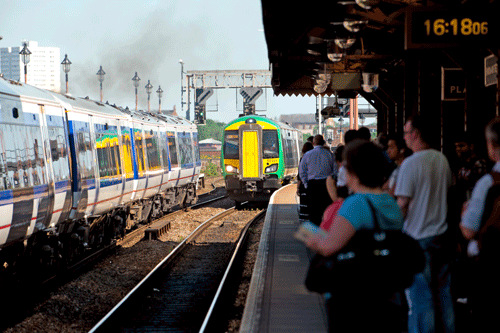

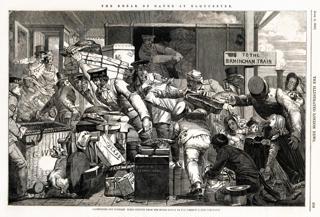
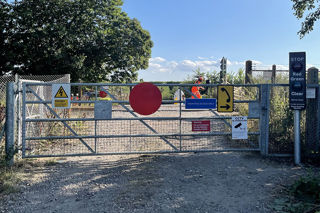
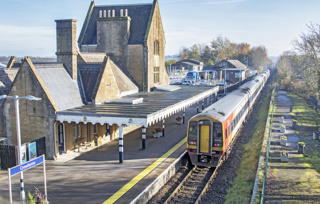
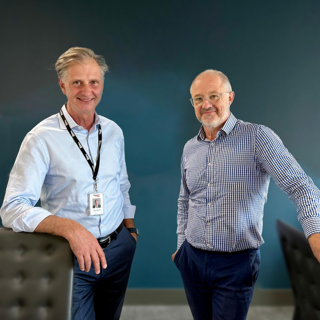











Login to comment
Comments
No comments have been made yet.